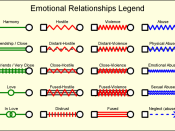Conflict occurs whenever disagreement exists in a social situation over issues of substance or whenever emotional antagonisms create frictions between individuals or groups. Managers can spend a great deal of time handling conflicts in the workplace. Such conflicts can include management involvement as one of the key factors. There may also be the type of conflicts where management may represent a third party involved. The manager may also act as a mediator whose job it is to resolve conflicts between other employees. Managers must also have a certain level of comfort in dealing with interpersonal conflicts. They must be able to recognize certain situations that could ultimately result in conflict and be able to deal with the situations in order to better serve the employees and the organization. It is important to remember that conflict is usually emotionally driven and often involves anger. There should always be an attempt to control these the emotions and not allow them to get out of control.
Conflict has two basic types, emotional and substantive. It is the manager's responsibility to be able to differentiate between the two and bring all parties involved to an understanding and possibly a common resolution. By being able to understand both types of conflicts a manager can be more effective at keeping control of the organization and allow it to continue to be productive. The first, emotional conflict, can also be referred to as Type-A conflict and is a more personal, defensive and resentful type of conflict. It is a conflict where personal emotions and feelings have been involved. There is usually personal friction, personality clashes, ego, and tension. This type of conflict is also known as clash of personalities. Emotional conflicts can be a real detriment to any organization. It is also by far the most upsetting...


